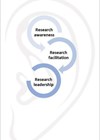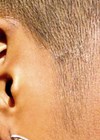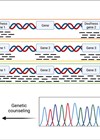Audiology features archive for 2023
Current perspectives of tinnitus and its management
Whilst there are various therapeutic options for ameliorating the impact of tinnitus, there is no current approved treatment for attempting to eradicate, or even for reducing, the loudness of tinnitus.
Getting started in research
Dave had a passion for research and was very encouraging in developing a research interest in others. Bhavisha and Amanda are currently working with a team of researchers, patients, research funders, the Department of Health and Social Care and NHS England, to develop the 2023-2028 UK Action Plan for Hearing loss and Tinnitus Research - a set of recommendations to grow hearing research in the UK. Here, they discuss their journey to hearing care research and how you could get involved in the world of research.
Implicit bias in audiology and wider healthcare
What is implicit bias and how might it affect patient outcomes in hearing healthcare? Yovina Khiroya provides insight into the terminology and the effect on people and service delivery. As much as possible within healthcare, we try to reduce implicit...
Current update on vestibular and balance disorders in children
Vestibular and balance disorders in children with hearing loss often go unrecognised. This article describes the significant impact such disorders have on the various aspects of children’s development. Vestibular and balance disorders occur in the paediatric population but can go...
Hearing screening during childhood using speech and sounds in noise
Although there is high prevalence of late-onset, progressive, and acquired hearing losses during childhood, these hearing losses can easily go undetected due to the lack of systematic hearing screening beyond newborn hearing screening. In this article, the authors share the...
EEG as a measure of neuroplasticity in children
Measuring changes in neural activity can teach us a lot about hearing loss and the effect of gained functional hearing. In this article, the authors describe how electroencephalography (EEG) is being used to effectively measure such changes in children with...
What you need to know about recent advances in genetics of hearing loss in the newborn
Identifying the underlying genetic cause of hearing loss in newborns can improve dramatically the early diagnosis and appropriate intervention. Hearing loss is the most common sensory disorder at birth, affecting approximately two out of 1000 newborns [1]. Congenital impaired hearing...
Cochlear implantation in children with congenital single-sided deafness
To date, there has been very limited data supporting the effectiveness of early provision of a cochlear implant to the deaf ear in infants with congenital single-sided deafness. In this article, the authors share their pioneering work with this special...














